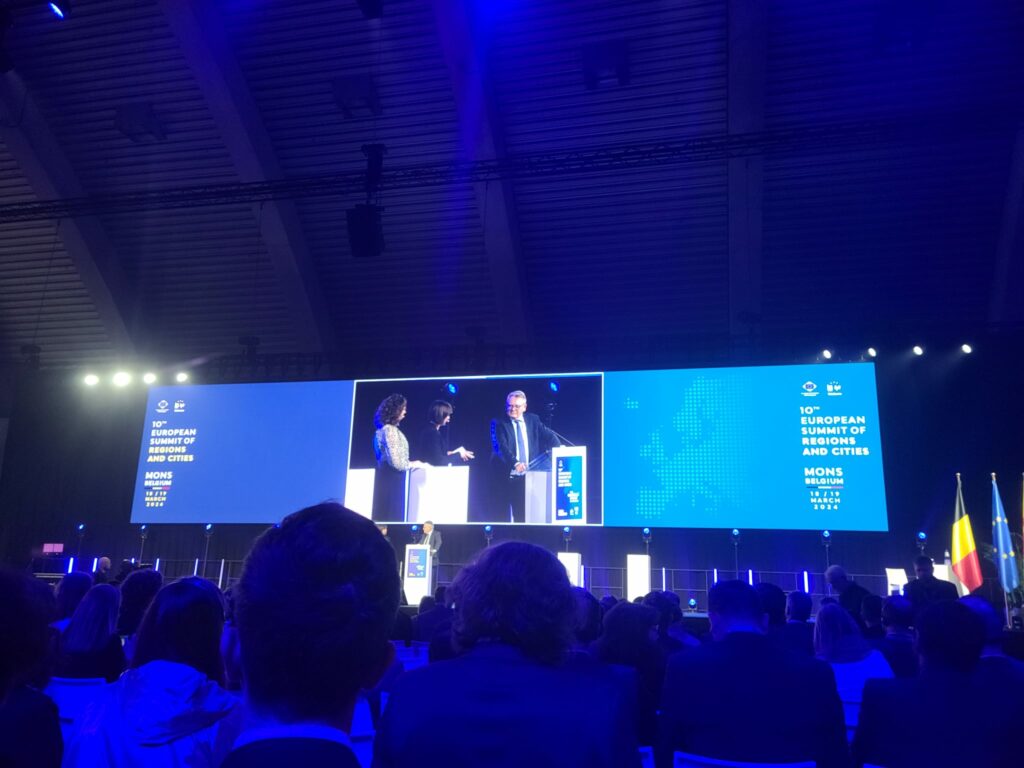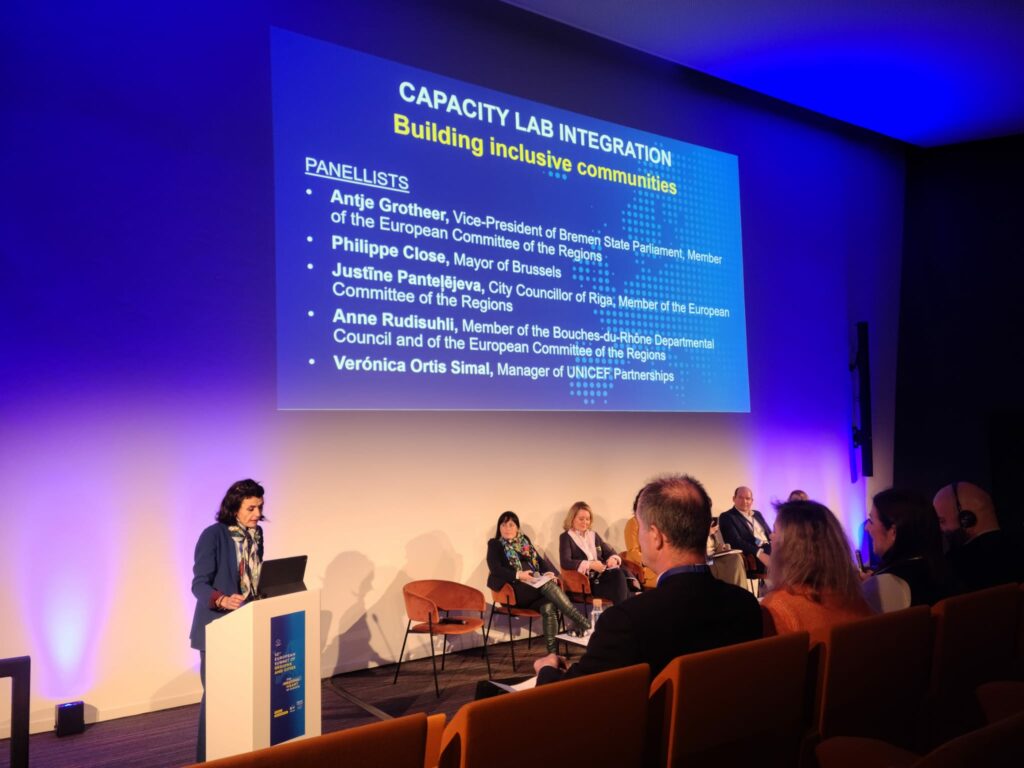Mons Summit of Regions and Cities: Regions and Cities at the core of Europe’s challenges
20/03/2024

Between 18-19 March 2024, the Committee of the Regions organised the 10th Summit of Regions and Cities in the Belgian city of Mons. The summit was an opportunity for regional and local representatives to debate the green transition, innovation, gender equality and integration, among other key topics for the future of Europe. EARLALL attended on the 18th March.
Cities and Regions as the heart of Europe
During the opening speeches, Vasco Alves Cordeiro, President of the European Committee of the Regions, referred to Europe’s regions as the “beating heart of Europe”. Elio Di Rupo, Minister-President of the Wallonia Region, Member of the European Committee of the Regions, welcomed participants to Mons and pointed out that Mons, as a recently developed post-industrial city, is proof of the importance of the cohesion policy.
Panellists from outside of the EU were then invited to speak about their opinions on the cohesion policy and the ability of regions and cities to cooperate on important issues close to citizens’ hearts. Speakers included Fatimetou Abdel Malick, President of Nouakchott Region, Mauritania, Chair of the Africa Section of the World Organization of United Cities and Local Governments; Sérgio Aguiar, President of the National Union of State Legislators, Brazil; Brian Patrick Kennedy, President of the National Conference of State Legislatures, United States ; Rudi Vervoort, Minister-President of the Brussels-Capital Region, Member of the European Committee of the Regions and Tetiana Yehorova-Lutsenko, President of the All-Ukrainian Association of District and Regional Councils and Head of the Kharkiv Regional Council .
Just transition and cohesion at the heart of future EU investment policies
Within the context of the necessary green transition that all regional and local authorities are facing, this plenary session explored how cohesion policy can be a lever for a just transition adapted to the realities of all regions and contributing to better public investment in Europe.
Nicolas Schmit, European Commissioner for Jobs and Social Rights, placed an emphasis on ensuring the green transition leaves nobody behind. He acknowledged the real threat that climate change poses for regions and cities, and called on these authorities to see the challenges as new opportunities. He concluded that “technology only works if there are people who can handle it, meaning we need to work on upskilling and reskilling the population”.Pierre-Yves Dermagne, Belgian Deputy Prime Minister and Minister of the Economy and Employment echoes Mr. Schmit’s thoughts, reminding the audience that a green Europe also has to be a social one.
Within a panel of regional and local authority representatives, Emil Boc, Chair of the European Committee of the Regions’ COTER Commission, Major of Cluj-Napoca, stated that “people need to understand the benefits of the green transition to get behind it”.
Building inclusive communities from a Regional perspective: Basque Country shares its experience

The session brought together high-level policy makers and local authorities to exchange good practices and identify aspects that have to be improved to put in practice efficient integration policies that can empower both new arrivals and host communities to engage in building a more inclusive future.
The session was moderated by Anna Gumbau, Journalist and invited at first Nerea Melgosa Vega, Basque Government Minister of Equality, Justice and Social Policies to share the inspiring practice of the region in regards to integrating migrants into local societies. Ms. Vega discussed a programme Trapecista, which is funded by the ESF+ fund and helps 18-25 year olds to transition into adulthood. The program typically benefits migrants and aims to provide participants with the skills to reach full financial and social autonomy, meaning they will no longer rely on the programme once completed. In 2023, 606 people were able to benefit from the project, and 76% achieved the desired autonomy objectives. Ms Vega concluded that “we offer to these migrants what we would like to receive”.
Panellists highlighted the importance of education and labour market policies to tackle integration. Philippe Close, Mayor of Brussels was “convinced that education should be the centre of our policy” while Antje Grotheer, Vice-President of Bremen State Parliament, Member of the European Committee of the Regions said that the “biggest issue is labour market integration as it is the first contact with society”. Anne Rudisuhli, Member of the Bouches-du-Rhône Departmental Council and of the European Committee of the Regions, shared the positive result of implementing mentoring in the region, helping those unaccompanied minor migrants in the region to achieve very positive social integration results.
The capacity-lab was closed with the conclusion from all speakers that integration of migrants is an important local and regional issue, as migrants do not integrate first into a country without integration into local communities.




